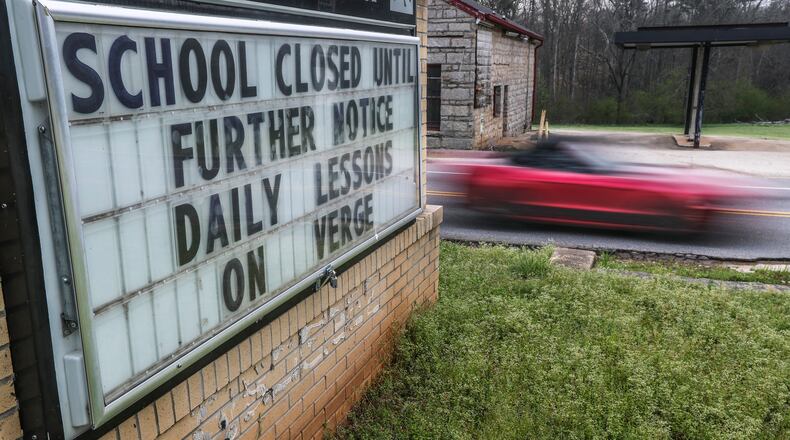The emerging snapshots of student learning from state exams and the National Assessment of Educational Progress confirm predictions that COVID-19 would create drastic academic gaps.
A new analysis of student performance by the Center for Reinventing Public Education describes the pandemic “as a wrecking ball for U.S. public education, bringing months of school closures, frantic moves to remote instruction, and trauma and isolation.”
Most reactions to the dismal performance of 9-year-olds on NAEP in mathematics, released earlier this month by the U.S Department of Education, feature the words “alarming,” “crisis,” and “disastrous.” The department itself called the 5-point decline in reading and 7-point drop in mathematics between 2020 and 2022 “the largest average score decline in reading since 1990, and the first ever score decline in mathematics.”
I am not surprised at the consternation over the scores. I am taken aback, though, by the framing of the scores as the failure of schools, especially those that remained closed longest, to put students first. Schools shut down to protect kids amid constantly shifting guidance from scientists and disease experts on how to combat the deadly virus.
We all have seen communities decimated by natural disasters, floods, hurricanes, tornadoes, that somehow rally and rebuild. The difference with those disasters is that there was an established and clear path to recovery led by experts who understood what to do after a hurricane blew a town apart or a tornado flattened a subdivision. Emergency shelters pop up, the Red Cross rolls in and convoys of power trucks take to the highways.
In the COVID-19 pandemic, there was no marked path out of the darkness, no experts with a proven playbook and no trucks packed with antidotes to the deadly virus. In March of 2020, the coronavirus leapt from a minor news event in faraway places to a plague at our front doors, and none of us was prepared, least of all schools suddenly asked to produce not only virtual instruction, but also meals, and, in many places in Georgia, internet access.
COVID-19 is better compared to a war than a natural disaster when you look at the death toll of those on the front lines. The World Health Organization estimates that 115,500 health care workers around the world died of COVID-19 between January 2020 and May 2021. The virus overwhelmed and depleted supplies and staff at Georgia hospitals with desperate health care workers reusing masks, gloves and gowns.
Today, at a safe distance secured by new vaccines, we can pick apart what schools should have done better during the pandemic, but we can’t assert that they should have known better.
No one knew, as shown by the deaths of more than 6.5 million people around the world. The Centers for Disease Control and Prevention estimates 10.5 million children globally lost a parent or caregiver to COVID-19. In the United States, the current estimate is that 225,600 children experienced the death of a parent or a custodial grandparent from the virus.
Yet, a national narrative is taking shape that school districts ignored the will of parents and remained virtual largely due to politics. Parents in Georgia districts that were remote the longest, including Clayton, Atlanta, Decatur and DeKalb, voiced many reservations about their children returning to classrooms. Most of these districts serve largely Black families, who had a higher proportion of family members or neighbors sickened and killed by the virus.
“Because so many of our families were front line, they were not willing for our students to come back overall,” Clayton County Superintendent Morcease Beasley told The Atlanta Journal-Constitution. “As a community, we basically made a decision that safety would be prioritized over everything else, which meant that students learned virtually.”
It was a vocal parent base of CDC researchers, physicians and university employees that influenced the City Schools of Decatur to offer extended hybrid instruction. That influence also contributed to Decatur’s decision to impose a COVID-19 vaccine mandate and later a booster requirement on its school staff, which earned the high-performing district a rebuke from Gov. Brian Kemp.
Decatur, Clayton and other metro districts didn’t discount parents in their COVID-19 policies; they deferred to them in many instances.
“It’s an easy finger to point in hindsight while conveniently forgetting the 95 million COVID cases and 1 million-plus deaths in the U.S. — 1 dead out of every 330 people,” said University of Georgia professor emeritus of education Peter Smagorinsky. “As if the best plan would be to just keep sending people into death traps, which presumably puts children first — in the grave. Maybe, they think we shouldn’t evacuate for raging fires and floods, either, because it’s the evacuation that’s so disruptive.”
About the Author
The Latest
Featured



